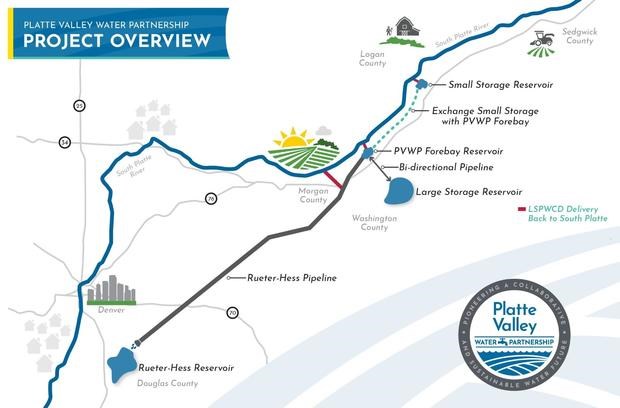Colorado faces growing concerns about water scarcity as its population and agricultural demands increase.
A new $1.2 billion water project aims to create a long-term solution for two areas in need: Douglas County's fast-growing suburbs and the farmlands of northeastern Colorado.
Colorado’s Water Shortage Crisis
Communities in Douglas County and northeastern Colorado face growing challenges due to water shortages.
Farmers in the northeast often rely on groundwater during dry months, which has been dwindling after years of repeated drought.
Suburban areas like Castle Rock are also seeing rapid growth, increasing the demand for a reliable water supply.
Both regions recognize the need for sustainable solutions to secure their futures.
Farmers need consistent water sources to grow crops and raise livestock, while suburban towns require resources to meet the demands of their expanding populations.
The lack of a long-term solution has left both groups seeking collaborative options to close the water gap.
The Platte Valley Water Partnership
The Platte Valley Water Partnership is a joint effort involving Parker Water, Castle Rock, and the Lower South Platte Water Conservancy District.
This ambitious project will divert water from the South Platte River near Sterling to a newly planned reservoir in northeastern Colorado.
The water will then be transported to Douglas County via an extensive pipeline system.
The project is designed to benefit both suburban and agricultural users.
Suburban communities will gain access to a renewable water source to support growth, while farmers can use the infrastructure to better manage their water needs.
This collaboration avoids common conflicts over water rights by ensuring resources are shared without taking away from agricultural users.
A $1.2 Billion Vision for Long-Term Water Supply
The project’s first phase, costing $835 million, will establish the infrastructure to store and transport water.
This includes building a 120-mile pipeline and a new reservoir with a 70,000-acre-foot capacity near Fremont Butte.
The full project, estimated to cost $1.2 billion, will be completed over 50 years.
The plan aims to shift Douglas County toward renewable water usage and reduce reliance on depleting aquifers.
The stored water will help replenish aquifers, providing a backup during dry periods.
By addressing long-term water needs, the project represents a sustainable approach that supports both urban and rural communities in Colorado.



